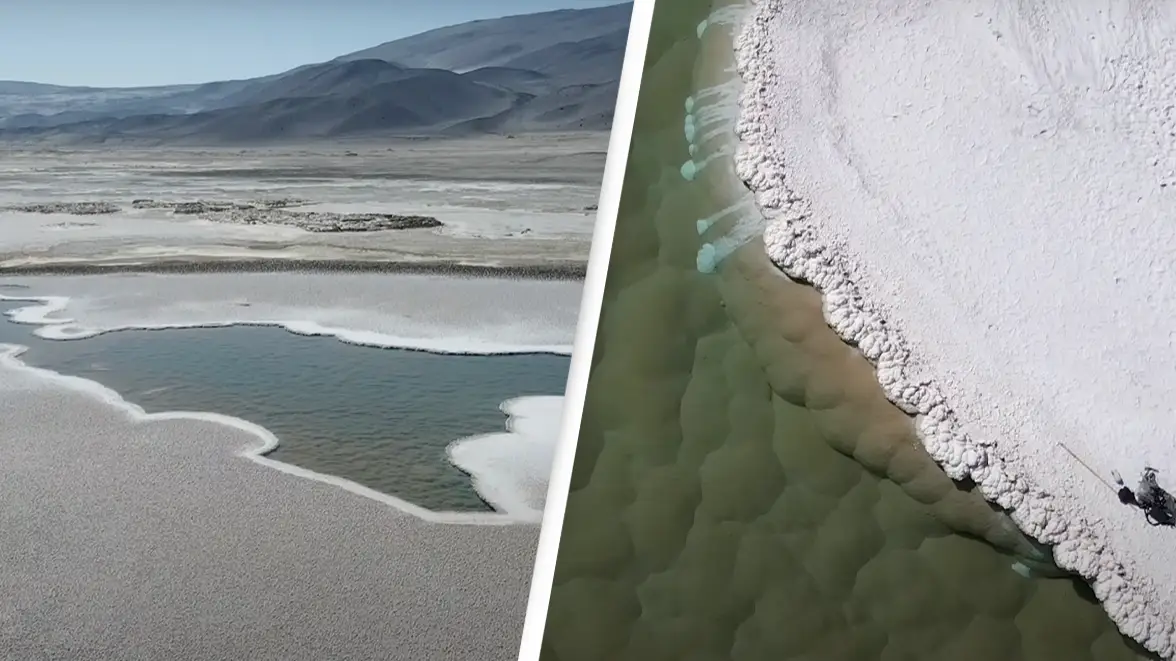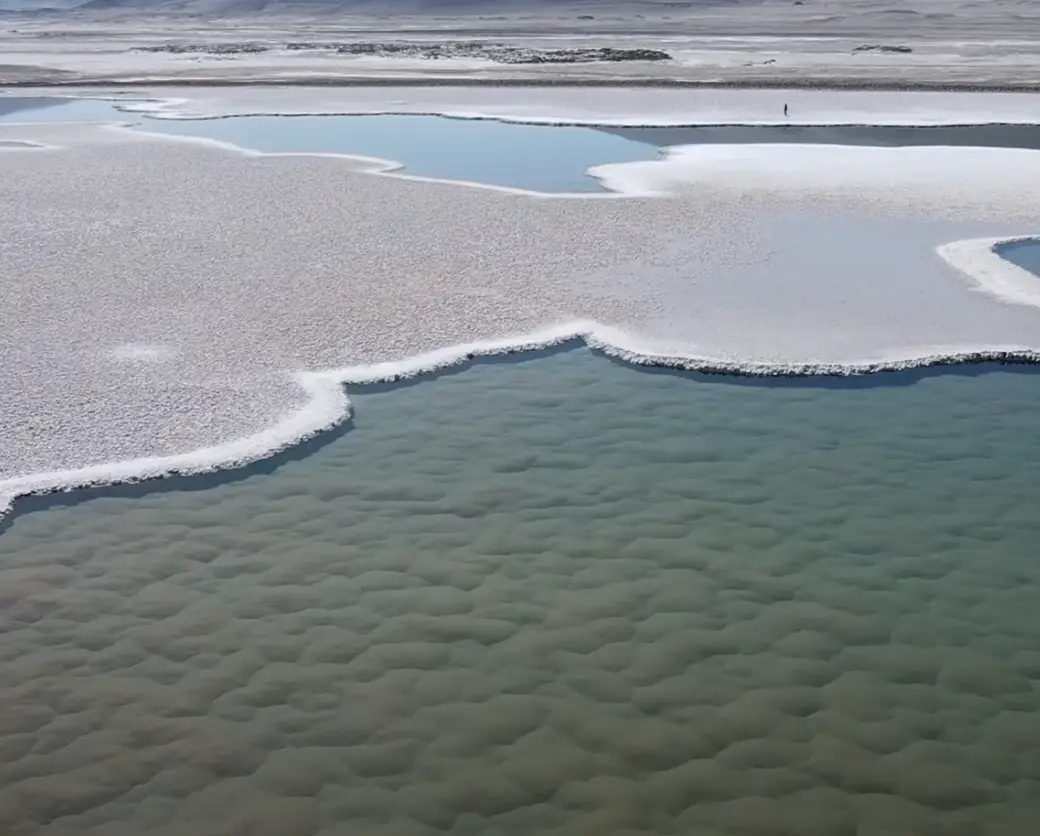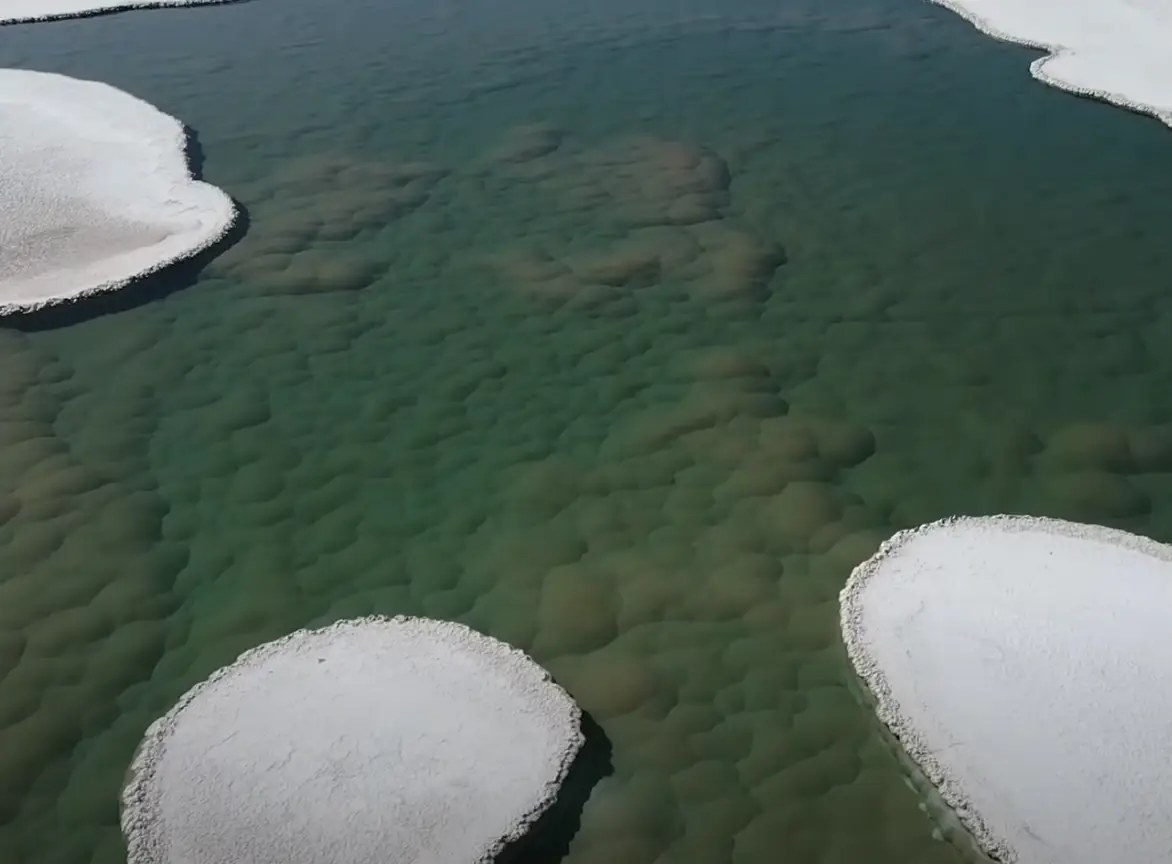
With its ever-changing landscape, the Earth is home to all sorts of mysteries just waiting to be discovered.
One such secret has been hidden away in Argentina's Puna de Atacama; a high plateau desert which sits than 12,000 feet above sea level.
The environment was 'previously unknown to science', according to the University of Colorado Boulder, but once discovered was found to be home to a system of lagoons surrounded by salt plains.
Advert
The area is one of the driest environments on Earth, meaning few plants or animals can survive there, but new research has uncovered an entire lost world hidden inside the lagoons.
Brian Hynek, a professor in the Laboratory for Atmospheric and Space Physics (LASP) and Department of Geological Sciences, found the lagoons along with microbiologist Maria Farías last year.
The discovery came after Farías brought Hynek to one of her study sites in northwest Argentina, where the scientists had to drive roughly nine hours down a dirt road and stay in a village of about 35 people who rely on a single spring for water.
While in the village, Hynek was looking at satellite images and spotted what appeared to be a network of lagoons.

The pair drove and hiked to get to the area, at some points sinking 'up to [their] knees in salt slush', but the effort paid off as they discovered 12 lagoons
stretching over 25 acres.
Beneath the water, the scientists could see vibrant displays of stromatolites; complex microbial communities which form large mounds of rock, similar to corals in a reef.
Hynek helped to document the stromatolites, which appear as mounds of green growth as big as 15 feet wide and several feet high.
Preliminary observations by Hynek suggest these communities may be reminiscent of stromatolites which existed during the early Achaean period 3.5 billion years ago, when oxygen was almost nonexistent in the atmosphere.
“This lagoon could be one of the best modern examples of the earliest signs of life on Earth,” Hynek said. “It’s unlike anything I’ve ever seen or, really, like anything any scientist has ever seen.”
As well as providing scientists with a look at ancient life on Earth, the find could also offer insight to how life may have arisen on Mars, which resembled Earth billions of years ago.

“If life ever evolved on Mars to the level of fossils, it would have been like this,” Hynek explained.
“Understanding these modern communities on Earth could inform us about what we should look for as we search for similar features in the Martian rocks.”
The professor described finding the environment as 'the biggest eureka moment' he's ever had in his life.
“It’s just amazing that you can still find undocumented things like that on our planet,” he added.
It's unclear why the stromatolites have formed at this particular location, but the scientists hope to conduct further experiments to shed light on the environment.
They may have to work quickly, though, as a company outside Argentina has already leased the area to mine for lithium; a project which could transform the lagoons forever.
Topics: Science, World News, Environment, Space